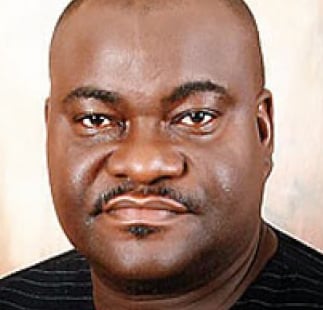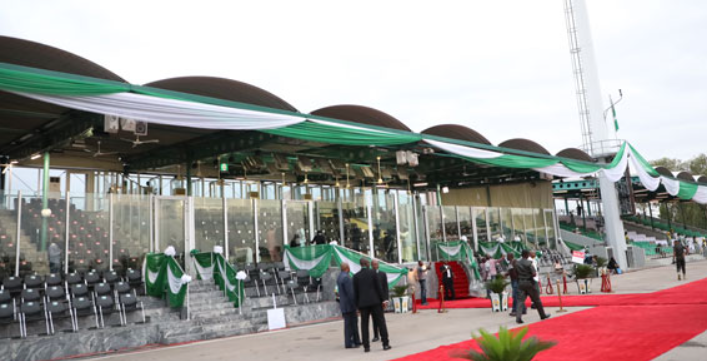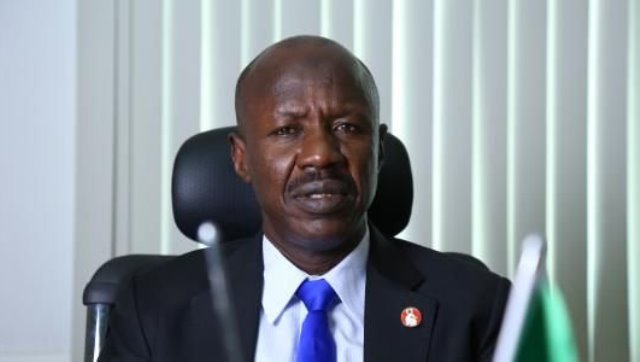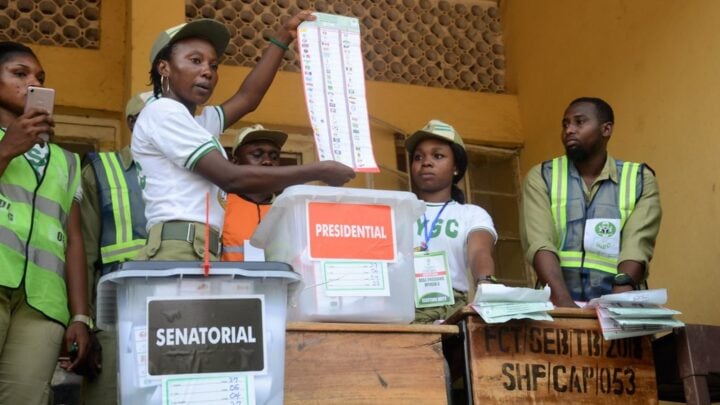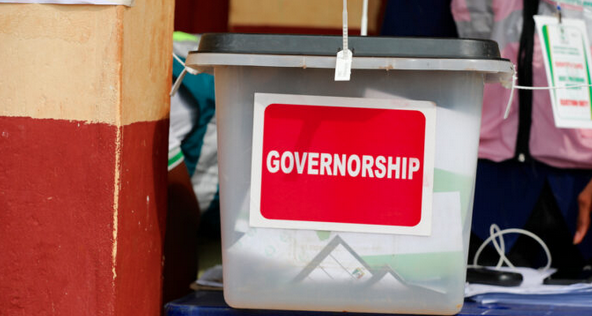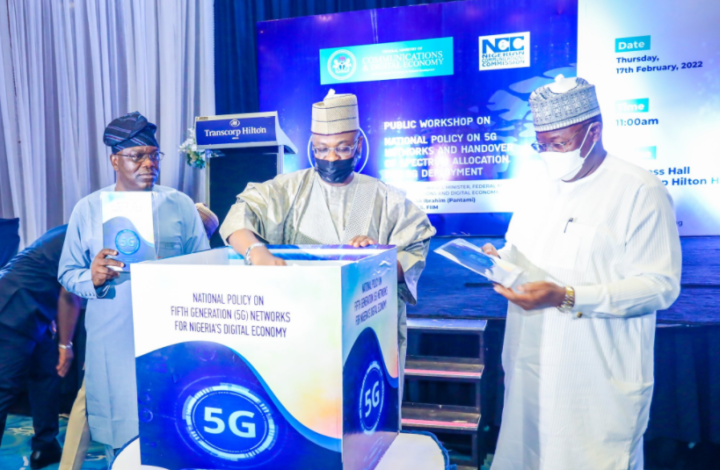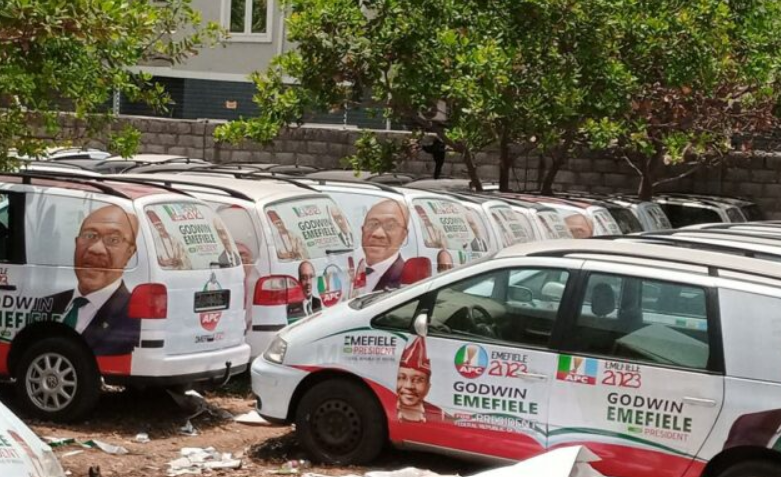At no point in Nigeria’s political history have we had the number of aspirants for the presidency of the country, as have popped up in recent weeks. True, we once had 78 registered political parties earlier in the subsisting fourth republic, each of which fielded presidential candidates. Our contention here, however, is that at no epoch in our democratic evolution, have we produced a staggering four dozen aspirants from just two major political parties, all jostling for that singular Number One office, which becomes vacant, a year from now. Muhammadu Buhari, who has put up a largely disappointing, better-forgotten shift as the nation’s chief executive since 2015, will hand over to a new president of Nigeria, Monday, May 29, 2023, willy nilly.
Most expectedly, the event will hold at the “Eagle Square,” at the heart of the “Three Arms Zone,” in Abuja, Nigeria’s capital. The arena has been popularised since the dawn of this republic, as the prime open-air events’ place. Nigeria’s last military head of state, (at least until now), Abdulsalam Abubakar, handed over to Olusegun Obasanjo, at that venue. Thereafter, three other Commanders-in-Chief, Umaru Musa Yar’Adua, Goodluck Ebele Jonathan and Buhari, took their oaths of office and allegiance at the same venue, typically beneath the resplendent African sun.
All manner of dramas has attended the declaration of interest and collection of expression of interest and nomination forms, (EOI), by various aspirants, respectively. Whereas some declarations held in open-air spaces have featured rented crowds and simulated carnivals, orchestrated proxies have bought the forms for some of them in other instances. Huge sums of money have also been paid to media houses just to feature the otherwise routine collection of forms on the front covers of many newspapers. The Yoruba will ask the question: “If so much effort is invested in rehearsing an act of madness, for how long will the psychiatric episode effectively last?”
This piece is a very dispassionate exegesis, to clear preliminary cobwebs of misinterpretation. It is not about the preposterous, thoroughly mind-boggling sums paid by various aspirants thus far, including serving public officers many of whose names feature on the political field, to obtain the nomination forms. This effort is not specifically an interrogation of the workings of an administration that perennially sings probity and accountability but has done the very opposite, at every turn. To be sure, the onslaught, if any, against corruption, graft and malfeasance, was cremated long, long ago. Buhari’s APC has back in the days, openly announced that light-fingered public officials from previous eras who defected to the party are entitled to simultaneous deodorisation and beautification.
Advertisement
Rather, we intend to chew at the probable inspirations for this all-comers’ craze for the Presidential Villa, that palpable counterfeiting in parts, of the quality of aspiration for the all-important position of president. We are indeed, truly confronted with the spectacle of latent awada kerikeri. The national political esplanade, for the avoidance of doubt, has become so very unusually clogged, cluttered, clustered, bothering on the tragicomical.
There is a suggestion that the current stampede to succeed Buhari by such a brimming pool from the political class, is founded on mass disillusionment about his performance. Buhari in 2015, rode to power on the crest of overflowing goodwill, after the political conglomerate cobbled together to birth the APC, and overpowered the ruling PDP, at the time. The APC propaganda machinery railed at the Jonathan administration on all fronts, such that you wouldn’t buy that whole governmental gamut for a measly naira. Playback campaign videos of the APC cross-country campaign, and re-echo the smacks, kicks, knocks and lambasts the PDP received at the time. The APC indeed set timelines with which it was to fix Nigeria if it got a chance.
The party vowed that Nigeria’s electricity challenge which has remained intractable over the ages will be decisively resolved within months. The disturbing national security problem, which had snowballed into a full-blown insurgency in the north-east of the country, would be ameliorated in a jiffy, once the APC gained political ascendancy. Frequent allusions were made to the Chibok girls saga where hundreds of girl students in a boarding school in Borno state were herded into vehicles under the cover of darkness, and driven into captivity. Buhari swore to tackle corruption headlong, a laughable slogan which merely flies in the face of contemporary realities. Tinubu said, on a particular campaign outing, that the United States of America (USA) and France at various epochs in their evolution resorted to their reservoir of tested military generals, for leadership and direction. Buhari, he said, was that needed messiah in our own circumstances.
Advertisement
Nigeria’s economy was steered by acclaimed technocrats including Okonjo-Iweala, now director-general of the World Trade Organisation (WTO) and Akinwumi Adesina, president of the African Development Bank (AfDB) under Jonathan. With other professionals like Arunma Oteh, a former vice president and treasurer of the World Bank, and Sanusi Lamido Sanusi among others operating various levers of the government, Nigeria’s economy flourished in that regime. At the time he handed over power to Buhari in 2015, Nigeria was acclaimed as the largest economy in Africa. The naira exchanged at about N197 to the US dollar. Premium motor spirit (petrol) sold for N85 per litre; diesel sold for a maximum of N160 per litre and a bag of rice sold at N9000 for a 50-kilogram bag.
With the bottom-of-the-valley pedestal, the below-sea level to which Buhari has dragged Nigeria thus far, our situation is urgently deserving of conscientious intravenous infusion, even holistic remediation. This can only be achieved by an experienced, sincere, altruistic, broad-minded, accommodating, focused, hands-on leadership at the core of the wheels of state administration. To appropriate an Achebe-an idiom, the incumbent government has dismembered the delicate strands that held us together as a people and a nation. Things have fallen so disparately apart under Buhari’s watch, and the centre can no longer hold.
That Nigeria has never been as divided and fractured along ethnic and religious lines, as we presently are, needs no rehashing. If this realisation was bad enough at home, the very fact that host countries of Nigerians in the diaspora now know the Yorubas as different from the Igbos, or Hausa/Fulani is disturbing. Such ethnic profiling comes to the fore in every confrontation between Nigerians and South Africans, for instance, in the regular flashpoints of Hillsborough in downtown Johannesburg, our kinsmen from the east, the usual focus.
Despite Buhari’s touted prioritisation of economic rejuvenation, en route to Aso Rock in 2015, things have worsened beneath his thin-rimmed glasses. Nigeria has suffered two back-to-back recessions, which have deepened the national economic morass. Frederick Nwabufo in a November 21, 2020, article published in TheCable, reminds us of the country’s slide into recession in the first and second terms of Buhari in 2016 and 2020, respectively. Just in case we have forgotten, Nwabufo alludes to the 1984 recession under Buhari’s military rulership. Thirty years after he was kicked out of office by his colleagues, Buhari’s return in civilian costumes had not impacted his vistas of political economy. He just doesn’t have it.
Advertisement
The gross and most incompetent mismanagement of the national economy under Buhari has triggered the worst inflationary trends ever witnessed in our sociopolitical history. A 50-kilogram bag of rice which cost N9,000 under Jonathan’s government seven years ago is nestling close to N30,000 today. A litre of petrol has jumped to N164, twice the price Buhari inherited the product. As we speak, fuel queues have once again inscribed hieroglyphics on the streets of Nigerian cities. A litre of kerosene today sells for N975. Didn’t airlines operating in Nigeria recently threaten the nation with a strike over the unbearable price of aviation fuel? A kilogram of beef sells for between N2,500 and N3,000, depending on the place of purchase. The exchange rate of the naira to the dollar, is a scandalous N585 on the streets, 200% over and above what Buhari inherited.
It has become an annual ritual for Nigerian universities to embark on strikes and work-to-rule. Typically, such exercises are in protest against the federal government’s nonchalance to the provision of essentials for the smooth running of our tertiary institutions. Teaching and learning facilities, notably classrooms, lecture theatres, libraries, laboratories, hostels and recreational needs, are either in short supply, deficient, or outrightly unavailable. As we speak, university lecturers have embarked on a fresh 12-week industrial action, after an initial 66-day sit-at-home. Public servants who should resolve the issues are on the campaign trail, pursuing their selfish political interests.
Corruption has attained exponential dimensions under the incumbent administration, where public officials have perfected the sidestepping of internal controls and extant regulations, for their personal purposes. The vandalistic consumptiveness witnessed under this administration is non-pareil. Why has the security situation in the country persisted, even worsened, despite the serially humongous allocations and votes to the defence and security establishment? Didn’t a serving minister in the Buhari government reportedly distribute 200 vehicles to delegates of the APC in his state recently? How about the hundreds of vehicles branded with the photographs of the head of Nigeria’s exchequer, assembled in private premises somewhere?
And talking about security, under the subsisting administration, crime and criminality have become “one day, one trouble,” from across the country. The familiar Boko Haram insurgency in the north-east has been compounded under this government, courtesy of the recent activities of the brutal Islamic State of West Africa Province (ISWAP). And they are spreading their tentacles into Nigeria’s hinterland. Need we remind ourselves that banditry and kidnapping for ransom have hallmarked our day to day lives under this government? Gunmen rule the streets of the south-east, not forgetting a new tendency to target for arson and destruction, private and public facilities and infrastructure?
Advertisement
Sadly, we have in place an ultra-shameless leadership which continues to ascribe responsibility for its serial ineptitude and wanton failure to preceding regimes. In total aberration of basic rules of leadership, Buhari continually passes the buck of the monumental dysfunctionalities and crass failures of his government to Nigeria’s past. I’ve seen trending in recent weeks, a short video clip of the president in one of his campaign outings pre-2015, promising to take Nigeria from “top to bottom”. Aren’t we effectively there now, with the apposite designation of Nigeria as the “poverty capital of the world”?
And here come my worries and heart palpitations about the post-Buhari era, a glimpse of which we will envision after both major political parties have concluded their presidential primaries by the end of May. True, some of those who have procured the nomination forms under both entities are competent and committed. Any such candidate can advance Nigeria beyond our subsisting morass. In the same vein, there are all manner of jokers and jesters in the fray who conceive of this whole exercise as some kind of tombola, maybe indeed an exercise in betting.
Advertisement
Some of these fellows on whose laps leadership landed fortuitously, actually conceive of themselves as the real deal. Some of them, however, are virtual Pharaohs who have inflicted unspeakable pain on the people of their present constituencies, unable to walk the streets without a platoon of armed guards around them. There are those who have so callously looted the collective patrimonies of their people and left them impoverished, helpless and hopeless.
On the list of aspirants too, are regular guests in the offices and cell rooms of various anti-graft agencies, for the quantum heist they committed against the state. We also have those who, when judgement comes, hopefully, in the fullness of time, will take over the accommodations of Joshua Dariye and Jolly Tanko Nyame, former governors of Plateau and Taraba states, in barb-wired corrections centres. Both men recently received a presidential reprieve after years in the gulag.
Advertisement
As presidential aspirants move around the country on this round of national politicking, the delegates are their primary targets. Monetary inducement remains an integral part of these “consultations with delegates,” at times like this. Indeed for most delegates, this is “harvest season”. With both top political parties favouring the “indirect” mode of primaries, these delegates will exercise their franchise on behalf of their members and constituents at the primaries. We can only exhort that they take due cognisance of the travails and tempests suffered by Nigeria, particularly in the past seven years, beyond momentary gratification. We admonish that they settle for the essential unifier and healer of wounds, who will reassure us all that bright dawn, succeeds the darkness and tyranny of the previous night. We cannot afford any further, the wrong chess move of 2015.
Olusunle (PhD), poet, journalist, scholar and author, is a Member of the Nigerian Guild of Editors, (NGE)
Advertisement
Views expressed by contributors are strictly personal and not of TheCable.
Add a comment
